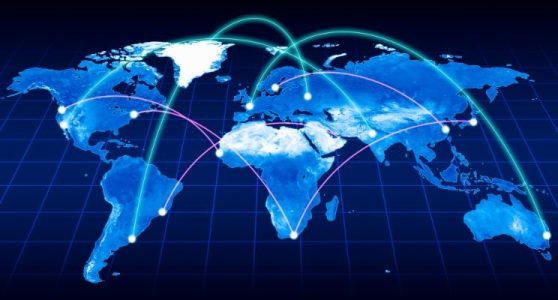Did we kill Globalization?
Which is the greatest country in the world?
Imagine this question announced at a G20 summit. The fake smiles of the diplomats fade away, and given enough time to discuss, even a bar fight breaks out.
Despite the childishness of the query, it seems to hit a nerve. However, there is one correct answer to this question.
The greatest country in the world is … my country!
Even those with a mind like a steel trap find it rusted shut when it comes to questions about their country. We will present historical, cultural, philosophical, and religious reasons why our motherland/fatherland is the greatest in the world. Greeks, Egyptians, Chinese, and Indians take pride, even compete with each other, in boasting that their civilization and culture date back thousands of years. Israelites talk about how all Abrahamic religions flowed out of their land. Africans quote the biologists and find solace in the fact that the human race evolved in their continent. Americans boast of their economy, Europeans on their standard of living, and so on and so forth.
This seemingly innocuous ‘my land is better than every other in the world’ attitude has led to border disputes, conflicts, ethnic cleansing, and world wars.
Why has this come to be?
Patriotism has been on steroids since the last decade. It makes even intelligent people act like bonobo monkeys. And yes, we have a name for the mass monster patriotism: Nationalism.
The second world war portrayed the horrors of Nazism and Nationalism. After their fall from grace, Liberalism and Globalization, which upheld the rights of individual and international cooperation, gained center stage. With the cultural exchange and dialogue inspired by these ideologies, people started to come out of their pigeonholes and enjoyed the fresh breeze of cooperation. Conflicts subsided and all seemed well for some time.
However, the selfishness dragon was awakened by the 2008 economic crisis. When countries blamed each other for the problem, we lost our trust in globalization. Rather than dealing with the problem together, every nation threw the other under the bus and tried to save themselves.
Seizing this opportunity, pied pipers emerged as Putins, Trumps, Modis, and Netanyahus. They played their nationalist tunes and enticed the masses with the myths of their nation’s glorious past. They put themselves at the front and center and declared themselves Nietzsche’s ‘Supermen’ who could make their countries great again.
Will we ever go back to harmony?
Nationalism opened Pandora’s box and out came unforeseen evils. States became omnipotent, leaders unquestionable, politics opportunistic, and minority rights a joke.
Nationalism also failed to curb the threats to humanity effectively. Pandemic, climate change, nuclear holocaust, and so on that begged for collective collaboration become unsolvable puzzles for these egoist philosophies and their proponents.
These shortfalls of nationalism pulled back our world striding to the future with ultra-fast communications, scientific achievements, and information democratization.
These shortfalls could spell the end of the lope-sided philosophies.
A world without borders
When there is a conflict between a philosophy of violence and that of love, violence wins, temporarily. The perennial brilliance of love cannot be masked by any clouds of hatred or the shadows of self-centered thinking. The ideology of global cooperation will overcome this dark era.
It is only a matter of time, but we will ultimately realize that humanity is greater than the arbitrary borders that separate us. However, the later the idea takes to penetrate our ego-filled thick heads, the greater the suffering.
Let us stop the mud-wrestling over ‘which country is the greatest’. Let us unite in love and solve the problems that could annihilate not only the human race but life on earth as a whole.

Excellent imagery and flow of thoughts! Felt like reading an article out of the open page of “the Hindu”!
Thank you dear!
Well prior to nationalism is our instinctual Neanderthal, Homo Sapien, and Denisovans nature of tribalism: from politics, religion, nationalism like you cited, to nativism, and sports, it’s all so silly.
So the part I always wonder about, and even Reagan asked it in his ‘87 United Nations General Assembly speech in NYC: is that there is a high likelihood that all of the UAPs that we have been seeing documented since the 40s by post WW2 pilots, military personnel, to the average Joe, Jane, and Betty Hill till now is proof of terrestrial/extraterrestrial life other than human. A species that is thousands to millions of years beyond us, and how will that knowledge have an ontological impact on us humans? Even crazier to think about, what if religion, folk lore, spirits, demons, gods, were the earliest documented interpretations of these non-humans all along.
When we realize that we are no longer the alpha predator of this planet, and we realize that we may have the significance of a monkey in a zoo, or maybe of lesser importance, like ants on the side of the road, what would happen to society?
I know at the heart of us humans we love to create things. That is our drive, for creating the newest iPhone to being on the verge of AI. All created by a 200k year old species that had a major reset of civilization 13k years ago, the Younger Dryas, is always so fascinating and it compounds how we know nothing. Nothing about our existence, the history of the planet or of the earliest inhabitants, and the uncertainty of our near future is eye opening and mind blowing.
So true, Greg. Our anthropocentric delusion is the major cause of all these troubles. Though silly, as you said, it is part of the human identity. If we humble ourselves to understand that we are just like any other creature in this earth, we might not destroy the nature and ourselves with our ego.
Thank you for your thoughts. Hope you are well.